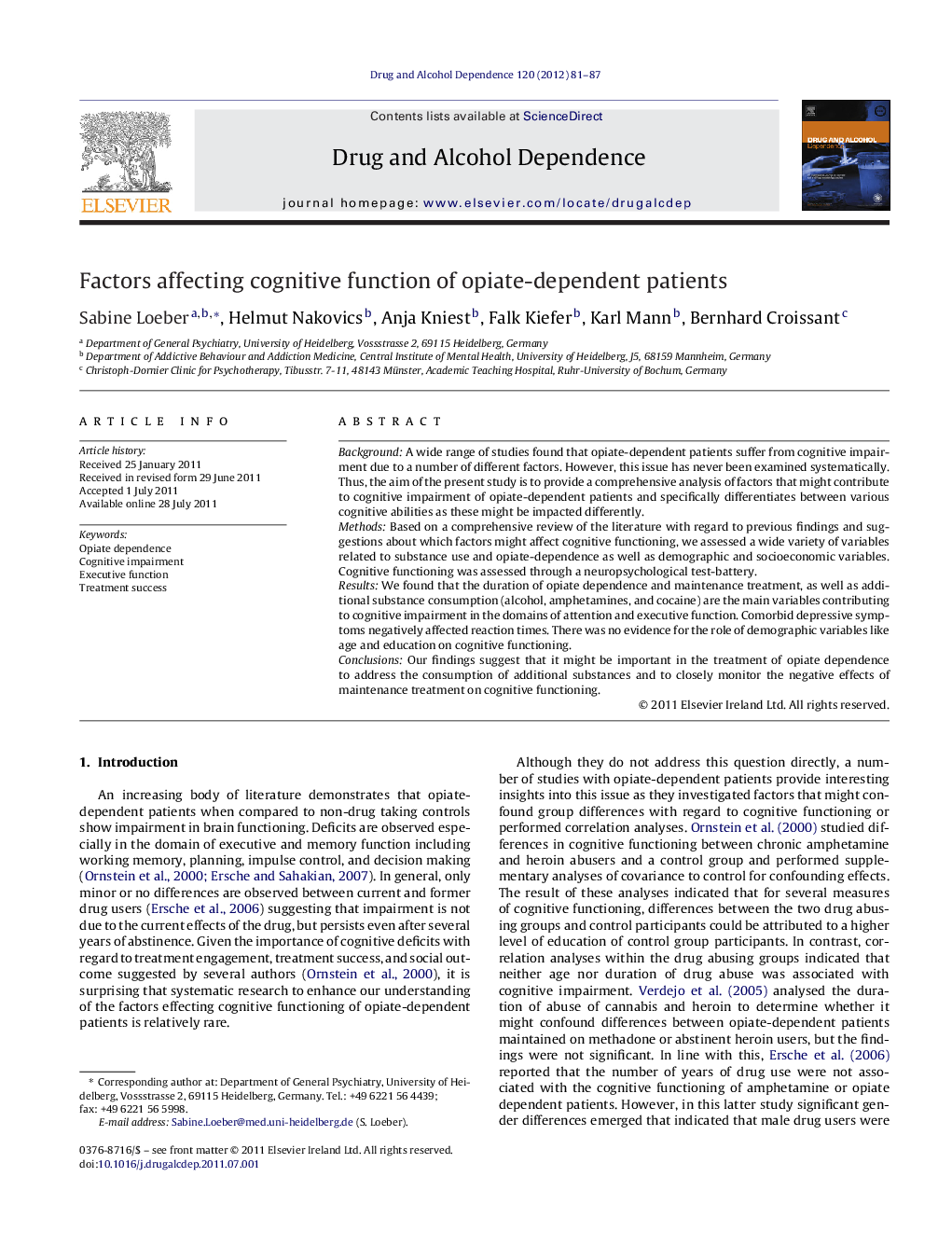| Article ID | Journal | Published Year | Pages | File Type |
|---|---|---|---|---|
| 1070188 | Drug and Alcohol Dependence | 2012 | 7 Pages |
BackgroundA wide range of studies found that opiate-dependent patients suffer from cognitive impairment due to a number of different factors. However, this issue has never been examined systematically. Thus, the aim of the present study is to provide a comprehensive analysis of factors that might contribute to cognitive impairment of opiate-dependent patients and specifically differentiates between various cognitive abilities as these might be impacted differently.MethodsBased on a comprehensive review of the literature with regard to previous findings and suggestions about which factors might affect cognitive functioning, we assessed a wide variety of variables related to substance use and opiate-dependence as well as demographic and socioeconomic variables. Cognitive functioning was assessed through a neuropsychological test-battery.ResultsWe found that the duration of opiate dependence and maintenance treatment, as well as additional substance consumption (alcohol, amphetamines, and cocaine) are the main variables contributing to cognitive impairment in the domains of attention and executive function. Comorbid depressive symptoms negatively affected reaction times. There was no evidence for the role of demographic variables like age and education on cognitive functioning.ConclusionsOur findings suggest that it might be important in the treatment of opiate dependence to address the consumption of additional substances and to closely monitor the negative effects of maintenance treatment on cognitive functioning.
